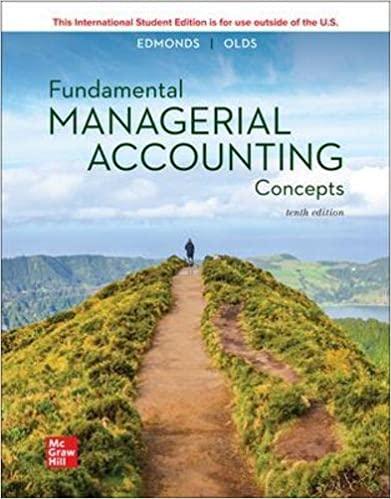Return to the situation as depicted in I (i.e., no depreciation). In addition to the numbers as presented there, during the year RR purchases $10,000
Return to the situation as depicted in I (i.e., no depreciation). In addition to the numbers as presented there, during the year RR purchases $10,000 of additional equipment. (It neither borrows the funds nor issues new equity to do so.) It decides on a payout ratio of two-thirds.
Recalculate RRs before and after-tax profits for the year, its ROE, coverage ratio and change in cash between the start and end of the year. Show the new balance sheet.
Return again to the beginning situation in I and the figures as given there. However, the number of meals served declines 10% with unchanged average price per meal and operating costs. Still, RR decides to pay the same dollar amount of dividends as it did in IV above. If necessary, RR draws from its bank credit line (i.e., increases bank borrowing).
What are RRs profits for the year, ROE, retained earnings and change in cash between the start and end of the year? Show the new balance sheet.
Return yet again to the situation in I. Among the 10,000 meals sold, 50 were an end-of-semester party for Rutgers Fundamentals of Finance students. Professor Dym asked if he could pay in January 2021, and RR reluctantly agreed. Dividend payout ratio is two-thirds. All else is the same.
What are RRs profits for the year, ROE, retained earnings and change in cash between the start and end of the year? Then calculate Coverage Ratio using EBIT.
Show the new balance sheet. How is the balance sheet affected when Dym finally pays his bill (hah!)?
Step by Step Solution
There are 3 Steps involved in it
Step: 1

See step-by-step solutions with expert insights and AI powered tools for academic success
Step: 2

Step: 3

Ace Your Homework with AI
Get the answers you need in no time with our AI-driven, step-by-step assistance
Get Started


